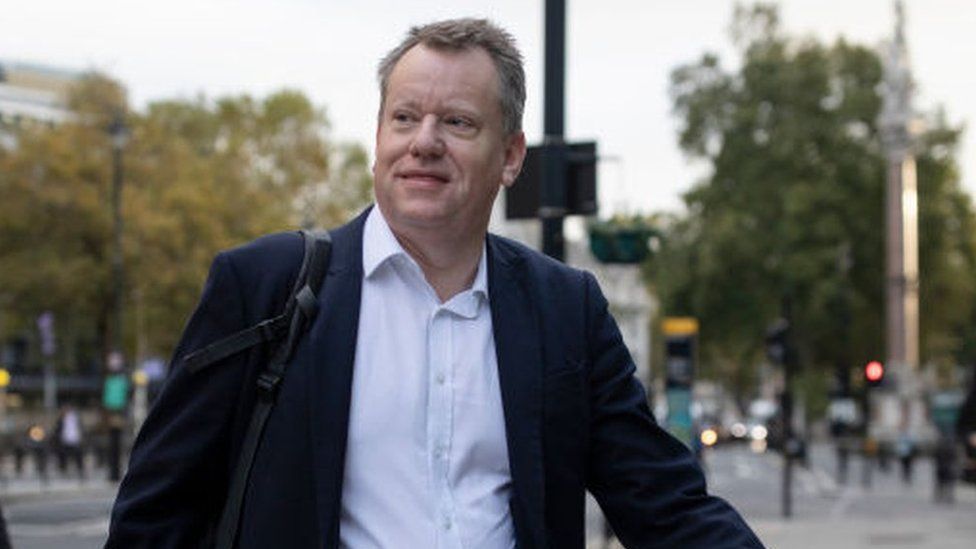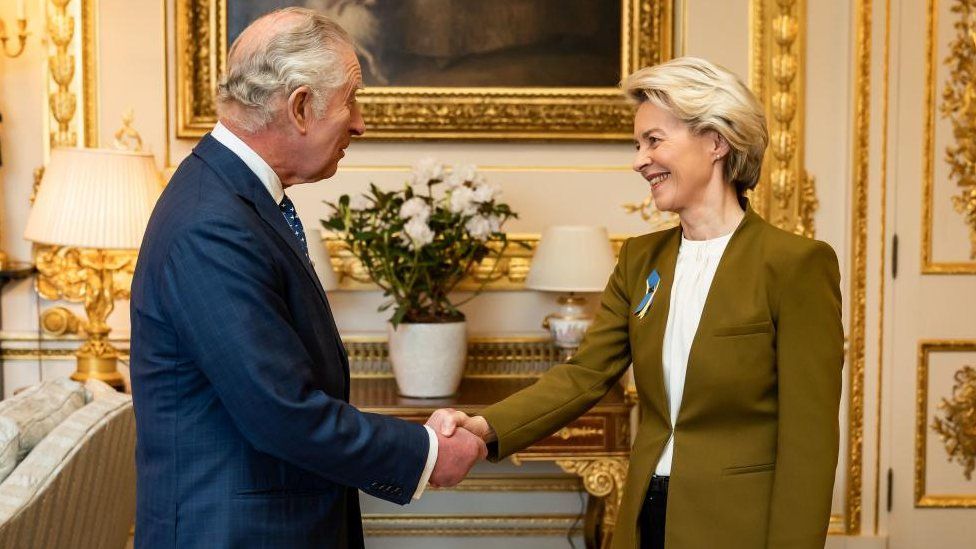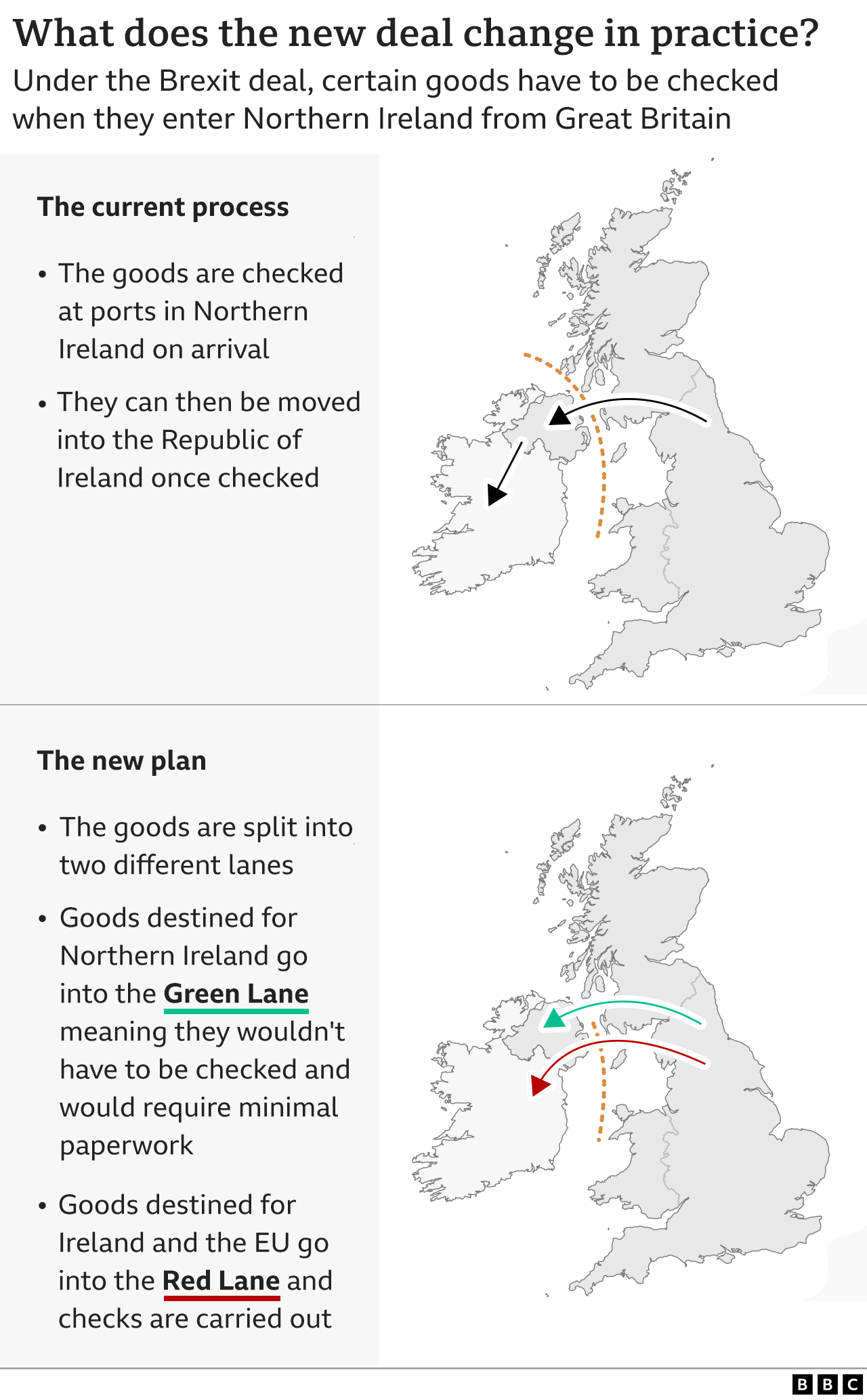
The UK's former top Brexit negotiator has said the new deal with the EU will make the Northern Ireland Protocol easier to operate but does not change its fundamentals.
The Windsor Framework was agreed on Monday.
Writing in the Daily Telegraph, Lord Frost said the government had been "overclaiming" some parts of the deal.
As an example he cited the extent to which it removes trade friction between Northern Ireland and Great Britain.
However, Lord Frost concludes that does not mean the deal should not go ahead even if it is "a bitter pill to swallow".
In 2019 Lord Frost negotiated the Withdrawal Agreement which included the original protocol.
Central to the trade aspects of the new deal is the concept of green lanes and red lanes.
British goods which are staying in Northern Ireland will use the green lane at Northern Ireland ports, meaning they will not have to be checked and would require minimal paperwork.
Goods which are due to travel into the Republic of Ireland will use the red lane, meaning they would face customs processes and other checks at Northern Ireland ports.
The Stormont official who originally developed that concept said the new deal is is better in "practical, constitutional and presentational terms" than either the backstop or the original protocol.
Andrew McCormick was the official in charge of Brexit issues at Stormont.
Much earlier in the Brexit process, in 2018, he floated the idea of red and green 'channels' but at that time the UK government was not keen on the idea.
Writing for the think tank the UK in a Changing Europe Mr McCormick said the new framework is "a very significant achievement - well beyond expectations on what might have been negotiable in the context set by the previous stances of the UK government and the EU".
Meanwhile the UK's former peace process negotiator, Jonathan Powell, has said the Democratic Unionist Party (DUP) is right to take its time to assess the deal but "should not get lost in the weeds".
Mr Powell suggests the DUP would be "wise" to ultimately accept the deal even if it does not deliver everything they want.
Writing in the Financial Times Mr Powell said the alternative would be "a dead end with no assembly at Stormont and permanent political instability in Northern Ireland".
Mr Powell was chief British negotiator in Northern Ireland between 1997 and 2007.

More on new NI Brexit deal
AT-A-GLANCE: The keys points in the agreement
ANALYSIS: What the deal means for businesses
EXPLAINED: The Stormont brake and how it works
DUP DILEMMA: Stakes are high for unionist party

Related Topics
https://news.google.com/rss/articles/CBMiN2h0dHBzOi8vd3d3LmJiYy5jby51ay9uZXdzL3VrLW5vcnRoZXJuLWlyZWxhbmQtNjQ4MDg2OTTSATtodHRwczovL3d3dy5iYmMuY28udWsvbmV3cy91ay1ub3J0aGVybi1pcmVsYW5kLTY0ODA4Njk0LmFtcA?oc=5
2023-03-01 09:02:06Z
CBMiN2h0dHBzOi8vd3d3LmJiYy5jby51ay9uZXdzL3VrLW5vcnRoZXJuLWlyZWxhbmQtNjQ4MDg2OTTSATtodHRwczovL3d3dy5iYmMuY28udWsvbmV3cy91ay1ub3J0aGVybi1pcmVsYW5kLTY0ODA4Njk0LmFtcA





